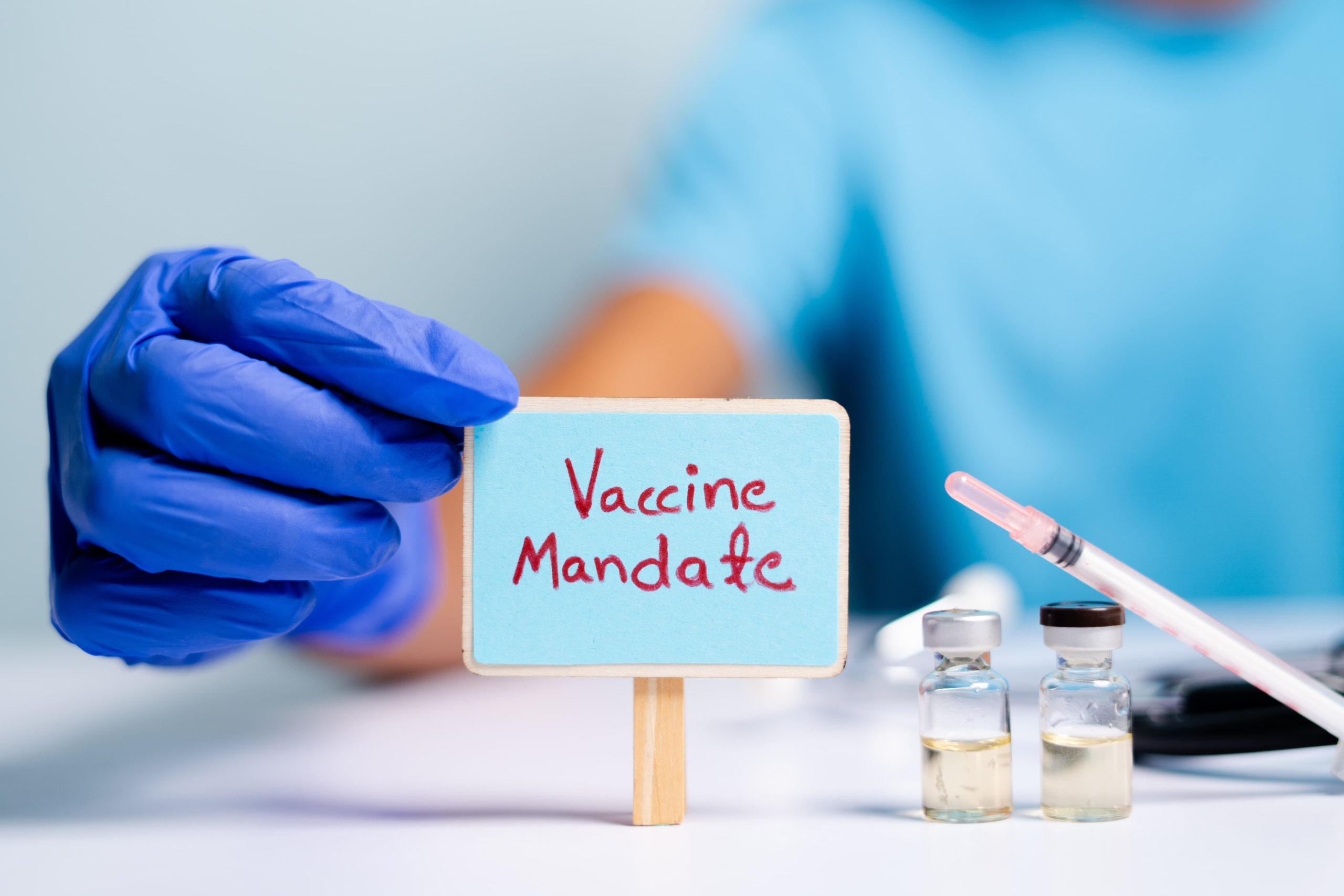Lori Macias
Here’s How the Biden Administration’s Vaccine Mandate Could Affect Your Business
On September 9, President Biden announced several initiatives to decrease the spread of COVID-19 and combat the ever-increasing threat of the Delta variant of the virus. The initiatives could affect as many as 100 million workers, and there are nearly 80 million eligible Americans who have not yet gotten their first shot.
Let’s take a look at some of the initiatives that may impact workers, and explore how the new mandates could affect your business.
Vaccine Requirements for Federal Employees
In an executive order issued September 9, President Biden outlined vaccine requirements for all federal employees and covered federal contractor employees. The order was established to “decrease worker absence, reduce labor costs, and improve the efficiency of contractors and subcontractors at sites where they are performing work for the Federal Government.”
Federal employees, including remote workers, will need to be fully vaccinated by November 22.
Rules Regarding Health Care Workers
The Centers for Medicare and Medicaid Services (CMS) are requiring COVID-19 vaccinations for staff within all Medicare and Medicaid-certified facilities, including hospitals, dialysis facilities, ambulatory surgical settings, and home health agencies.
Vaccine Mandate for Businesses with 100 or More Employees
The Department of Labor’s Occupational Safety and Health Administration (OSHA) is also developing a rule that will require all employers with 100 or more employees to ensure their workforce is fully vaccinated.
This requirement could impact more than 80 million workers in private sector businesses.
As part of the rule, workers who remain unvaccinated will have to provide a negative test result weekly before coming to work. In addition, covered employees who either have contracted COVID-19 or may be contagious with the virus will have to work remotely, be separated from other workers where possible, or be provided with paid time off (up to $1,400 per week).
OSHA would create an Emergency Temporary Standard (ETS) to enact this mandate. As part of the ETS, covered employers would have to provide their employees with paid time off to get vaccinated — and to recover from potential side effects from getting the shot.
Businesses Have Decisions to Make
Businesses who need to comply with the administration’s vaccine mandate, or want to implement a vaccine standard of their own, have big decisions to make.
Several large companies, including Amtrak, Goldman Sachs, Cisco and United Airlines, have already rolled out vaccine mandates of their own. In his COVID-19 action plan, President Biden praised Tyson Foods as a positive example, as half of Tyson’s unvaccinated workers have now received a shot ahead of the company’s November 1 deadline.
But what about smaller businesses that don’t have the resources of an Amtrak or Cisco? They’ll have to consider the financial ramifications of tracking vaccination status, paid time off for testing and getting the shot, etc. Companies will need to spend time and resources developing policies and procedures to ensure the vaccine mandate is correctly and efficiently implemented. And, they will need systems in place to enable and track weekly testing for individuals who are exempt from the vaccine mandate.
Perhaps most importantly, companies must consider the impact a vaccine mandate could have on their ability to hire workers. Those who are not vaccinated may decide to find work at places that don’t require vaccination. After all, workers have more options available to them during a labor shortage.
If you’re struggling to find the talent you need, Wonolo can help.
Find Wonoloers … Fast
It can be challenging to find the workers you need in a perfect world, let alone during a pandemic with a possible vaccine mandate on the horizon. However, with Wonolo, finding available contingent workers is made easy because local workers can immediately view and accept the jobs — and the specifications and duties of those jobs — that you post on the platform.
In fact, in response to the number of companies implementing vaccination requirements for specific jobs, including those that are posted on Wonolo’s platform, Wonolo has created a new COVID-19 Vaccination Badge. If a Wonoloer is fully vaccinated, they can fill out a COVID-19 vaccination badge form to upload their vaccination card and receive the badge.
While having a COVID-19 Vaccination Badge is entirely optional when using the Wonolo platform, doing so will enable the Wonoloer to accept jobs from companies that require vaccinations. The result is a more seamless process for connecting fully vaccinated workers to businesses. Workers also have the added benefit of using the badge as another tool to help them identify work environments they feel most comfortable working in.
Additionally, the Wonolo platform has a feature that allows you to “favorite” workers that have completed jobs with your business in the past so that you have the option to invite them back if and when future opportunities arise. The “Preferred Wonoloer” feature lets you give one or more workers priority access to your job posting, so they’ll see the posting before others. This greatly increases the likelihood that the workers you have favorited, and have familiarity with your business, will accept your job again.
These are just a couple of the unique features of the Wonolo online platform that helps companies across the country quickly find locally available workers. If you want to see some specific examples of how companies get the most out of Wonolo, check out our case studies.
*The information provided on this webpage is for general information purposes only and should not be viewed as tax, accounting, legal, financial, or other professional advice. All information provided on the site is provided in good faith, however, Wonolo Inc. does not make any representation or warrant of any kind, express or implied, regarding the accuracy, adequacy, validity, reliability, availability or completeness of any information in this article. You should not act upon the information contained in this article without seeking the advice of an accountant, financial planner, or other appropriate professional.”






